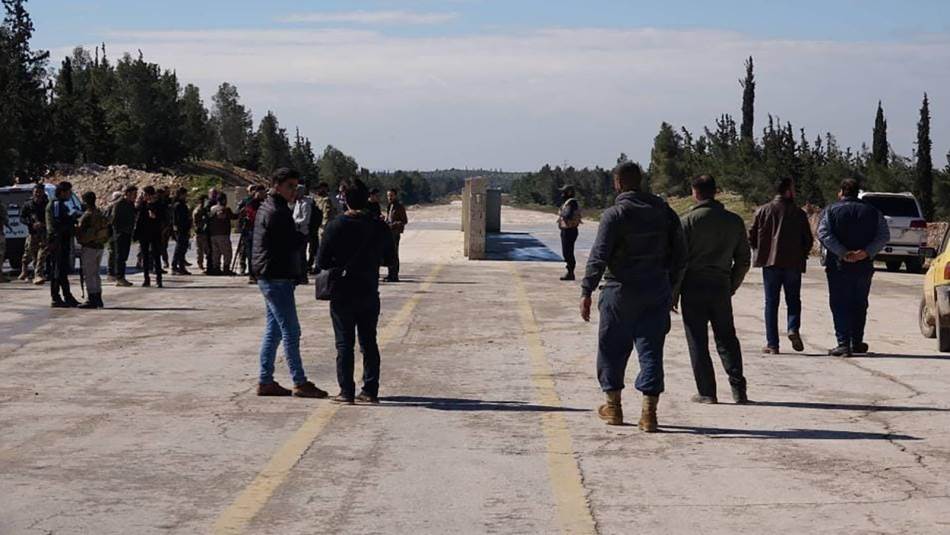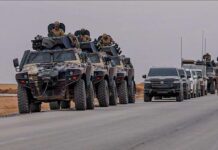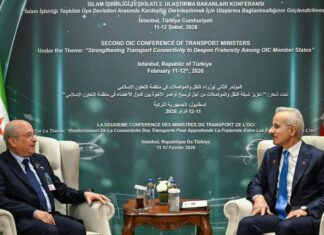
The local council of al-Bab in eastern Aleppo governorate announced the opening of the Abu al-Zandeen crossing, a key passage connecting the Syrian National Army (SNA) controlled, Syrian Interim Government (SIG) administered area, with regions under Assad regime control. The council made the announcement via Facebook on Wednesday, June 26, declaring the crossing would be opened “experimentally” within 48 hours, aiming to establish it as an “official commercial crossing.”
The council emphasized that the move reflects its commitment to “improving the living conditions for the locals and enhancing local economic activities.” It highlighted the potential for increased trade and business opportunities, which could boost commercial activities and enhance local council resources for public welfare and infrastructure redevelopment in al-Bab.
“The opening of the crossing will allow traders and business owners to transport goods, boosting commercial activities and increasing resources for public welfare and infrastructural redevelopment in al-Bab,” the announcement stated. It also called on residents and local activities to cooperate with authorities to facilitate the crossing’s opening, deeming it beneficial for everyone.
According to local sources, trucks had begun to enter from the Abu al-Zandeen crossing, west of the city of al-Bab, into regime-controlled areas. They noted that four trucks loaded with various materials, most notably wheat, had passed through the corridor. Notably, in April of this year SNA factions clashed over control of smuggling routes between SNA, SDF, PKK, and Assad regime areas due to trade between regions being restricted and often illegal under the current framework.
Al-Watan newspaper, which is close to the regime, quoted its sources as saying, “The Aleppo-Latakia highway was agreed upon in the Moscow, Russian-Turkish agreement since March 5, 2020, and its opening has been delayed since then as a result of Erdogan’s procrastination.” The source stressed that it is imperative to open the M4 road to traffic first, followed by the Gaziantep Road, known as the Shatt Road. This opening of the crossing for trucks, according to the source, was not contingent on opening the M4 and Shatt roads, but rather through “an independent Russian-Turkish understanding that takes into account the Syrian-Turkish economic interest, and later ‘humanitarian considerations’ when opening it to the movement of people.”
Recent statements from Turkish President Erdogan also reflect a potential shift in Turkish-Syrian relations. Two days ago, Erdogan expressed his country’s readiness to establish diplomatic relations with Assad. “There is no reason to prevent the establishment of diplomatic relations. We will continue to develop relations as we did in the past. We have no goal or intention to interfere in the internal affairs of Syria because the Syrian people are a brotherly society,” Erdogan told reporters. He added, “We held meetings with Mr. Assad, even at the family level. There is nothing preventing talks from taking place in the future.”
Reports have been circulating since mid-June about meetings between representatives of Turkey and Russia at the Abu al-Zandeen crossing site, sparking anti-movement protests in the region. On June 11, civilians and military personnel in al-Bab protested against Russia’s intent to conduct joint patrols with Turkish forces, expressing opposition to the entry of Russian forces.
Discussions about reopening the Abu al-Zandeen crossing as a “humanitarian gate” had been ongoing, but had not materialized until now. The crossing, located west of al-Bab near the village of Shamawiya, under regime control, connects al-Bab in eastern Aleppo within the Turkish-controlled Euphrates Shield area, to regime-controlled eastern Aleppo.
In March of 2020, the SIG closed the internal crossings of al-Hamran, Aoun al-Dadat, and Abu al-Zandeen to commercial traffic, citing safety concerns and measures to prevent the spread of COVID-19. Since then, the Abu al-Zandeen crossing had only reopened on exceptional occasions for prisoner exchange operations. It has also been a site for forced displacement operations, with convoys of displaced people from Damascus and Quneitra passing through at various times.








